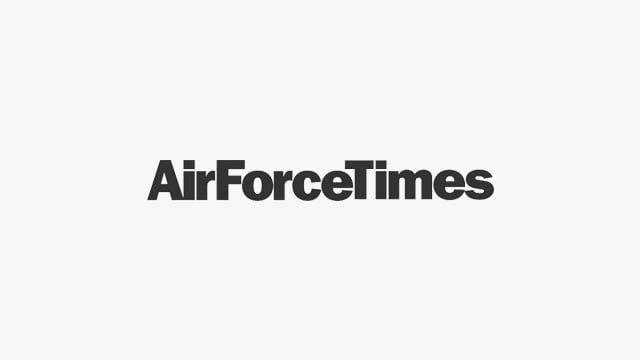Air Force Secretary Deborah Lee James on Wednesday announced bold moves to boost the careers of women and minorities in the service.
Speaking at the Center for a New American Security, she announced nine initiatives — from waiving height restrictions for pilots to improving mentorship programs — to increase opportunities for women and minorities.
"A fundamental question I ask is: Are we spending as much time and resources and energy thinking about the next generation of our people, the next generation of our airmen, as we are thinking about the next generation of aircraft?" she asked.
The initiatives:
• Career Path Tool — a revamped web-based mentor-matching capability, like match.com and a skill finder, like Craigslist. The tool "will allow airmen to find and request mentors, it will contain forum and live chat capability, and also additional features. We're going to rename it 'MyVector' and will be open to both civilians and to our military. By improving our ability to mentor, we hope to nurture and sustain an airman's growth throughout the course of their entire career," James said.
• Diversity and inclusion requirements for career field development team chairs. "Specifically, we will be asking them to conduct analyses to address barriers that may be now preventing some of our airmen from reaching their highest levels of performance," James said.
•
Guidance, to promotion boards. "This year, in addition to seeking officers demonstrating commitment to the welfare of our airmen and to our core values, I am using my authority to instruct board members to find officers who have demonstrated that they will nurture and lead in a diverse and inclusive Air Force culture," James said.
•
Career Intermission Program
. Already underway, the program allows "top performing airmen the flexibility to transfer from active duty to the IRR, the Individual Ready Reserve for one to three years and come back to us without losing their place in line for promotion in order that they be able to meet personal or professional needs and alleviate some work-life concerns," James said. She highlighted one participant, Capt. Shannon Williams, a C-21 pilot and mother of a seven-day-old daughter, who said she would have "tried to separate at the earliest possibility" if CIP were not available.
•
Increased pool of female officer applicants. "Despite this deep talent pool, our female officer applicants currently comprise only about 25 percent of our applicant pool. I'm one who thinks we ought to be able to do better. Let's go for it. Let's try. So we are setting an applicant pool goal of 30 percent. We want our officer accession sources to go after a 30 percent female applicant pool in the future," James said.
• Reserve Officer Training Corps Rated Height Screening Initiative. Current pilot candidates must meet the standard of a standing height of 64 to 77 inches, and sitting height of 34 to 40 inches. Waivers are currently only available to Air Force Academy cadets, but James would expand waiver opportunities to ROTC cadets. "We estimate that approximately 900 women will now have the opportunity to more easily compete to be a pilot and to be able to get access to that waiver process over the next five years," James said.
•
Identify and encourage enlisted personnel to apply for Officer Training School. "We're looking for enlisted members who have demonstrated the ability, specifically, to nurture and lead in a diverse and inclusive Air Force culture, and of course, those who are eligible to attend. We will encourage this diverse talent pool to apply for the more than 500 OTS slots and provide the tools and opportunities to do so."
• Increase current six-month Post-Pregnancy Deployment Deferment to 12 months. The goal is to alleviate the strain on "some of our talented airmen [who choose] to leave the Air Force as they struggle to balance deployments and family issues, and this is especially true soon after childbirth," James said.
•
Institute and standardize the use of civilian hiring panels for GS-14, GS- 15 and equivalent positions. "Our senior civilians, just like our military leaders, can benefit from diverse backgrounds, experiences, demographics and perspectives in order to provide innovative leadership, vision, and execution of missions within our Air Force," James said.
James also referred to the ongoing
Women in Service Review plan that outlines how the services and U.S. Special Operations Command will manage the incremental opening of seven previously closed positions to women.
"[Chief of Staff Gen. Mark] Welsh and I are very, very like-minded on this," James said. "We have seven career fields closed to women in the Air Force, and Gen. Welsh and I, our position is that we need gender-neutral, job relevant standards to be in place. And then these positions need to open. And boy, the burden of proof will be heavy on any recommendation to keep any of these positions closed once we have gender-neutral, job relevant standards in place. We're very much leaning forward on this, so stay tuned on that."




